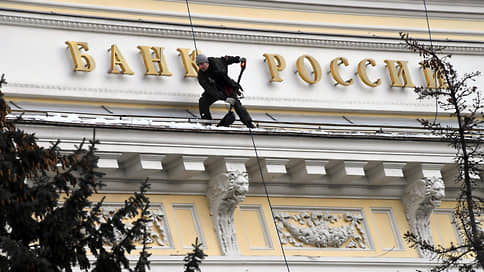The economy of the Russian Federation is promised less fall with less manageability
[ad_1]

The Bank of Russia has updated its medium-term macroeconomic consensus forecast based on surveys of economists from 28 organizations on January 27–31, 2023. Since December, some of the parameters have changed: the budget deficit amounted to 2.3%, and not 0.9% of GDP, which the Ministry of Finance expected, the situation with restrictions on the export of oil and petroleum products became clearer, foreign exchange operations returned within the framework of the budget rule, and the ruble weakened, lists author of the Telegram channel “Solid Numbers” Radion Latypov. Against this backdrop, forecasters’ expectations of GDP contraction in the near future have noticeably decreased – from 2.4% to a 1.5% decline in 2023.
The spread of forecasts for the dynamics of the economy, as before, is large: for 2023 – from minus 6.5% to 0.4% (see chart) – so the IMF forecast of 0.3% stagnation of the Russian economy in 2023 hit the top consensus boundary. Significant volatility in the economy is also indicated by an increase in the inflation forecast (from 5.8% to 6% for the current year), and rates: the average value of the Central Bank key rate – from 7.3% to 7.5%, and the neutral one (the rate, at which inflation and its expectations correspond to the goals of the Central Bank, and GDP growth – to potential) – from 5.5% to 6%. The authors of the MMI Telegram channel (consensus members) see the forecast changes as logical. “The government is flooding the crisis with money, unprecedented budget spending raises GDP, but accelerates inflation and requires tighter monetary policy,” they explain, noting that the increase in neutral rate estimates suggests that economists see a change in fiscal policy as a long-term one.
Experts conclude that inflation is becoming more difficult to control. In December 2022, the budget spent 2.1 trillion rubles. more than expected, adding to this 0.9 trillion rubles. in January, notes Mr. Latypov, and this is 2% of GDP extra deficit in two months, which adds about 2-2.4 percentage points to inflation (according to the estimates of the Bank of Russia itself). “The benchmark for the average key rate for 2023 will again remain at the level of 6.5-8.5%?” he asks. “Under the new conditions, inflation will be less predictable, and this requires additional compensation for savings in rubles. Talking in the spirit of “we will weaken the ruble for the sake of budget revenues” will not help to reduce the neutral rate either,” Alexander Isakov from Bloomberg Economics is convinced.
[ad_2]
Source link






